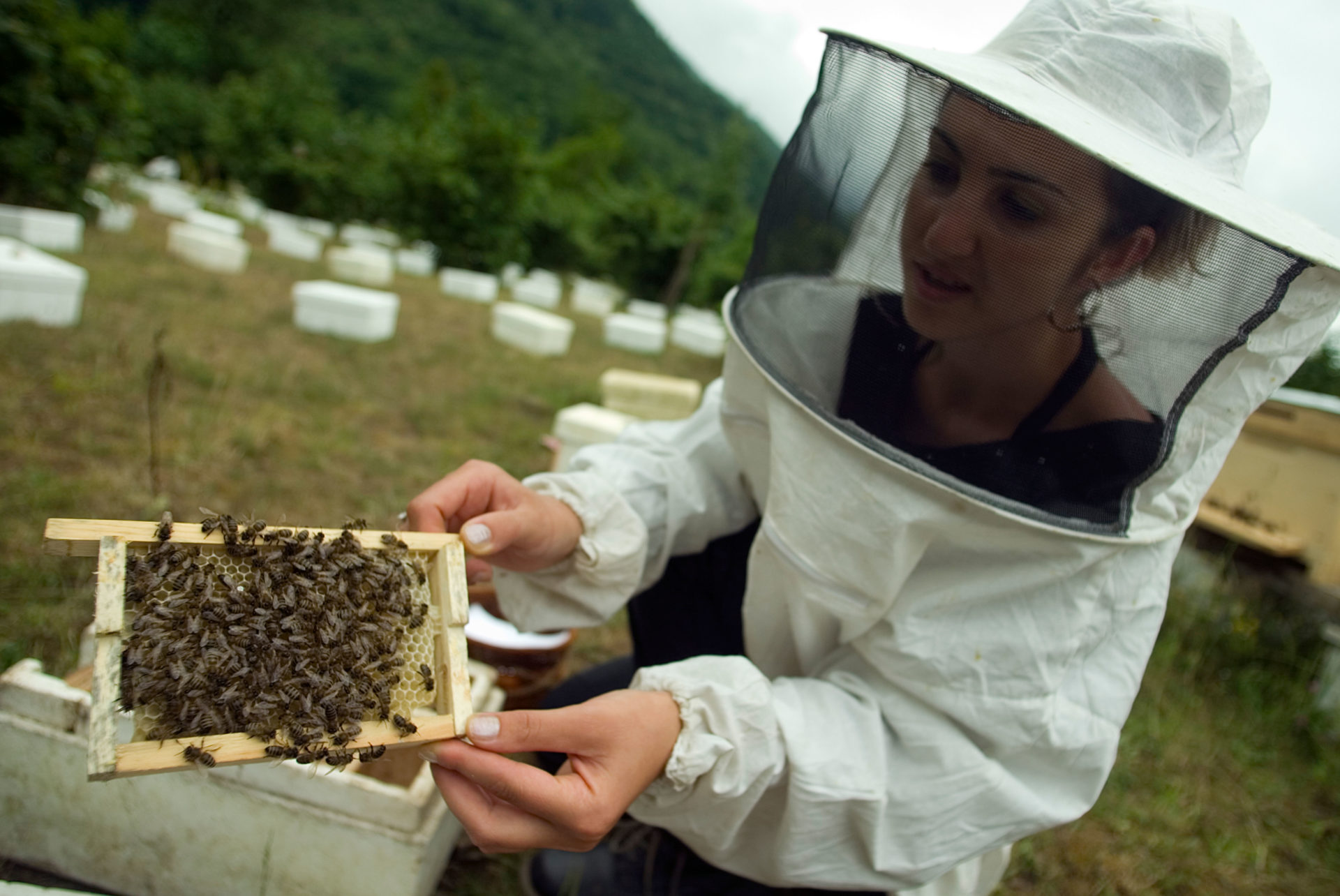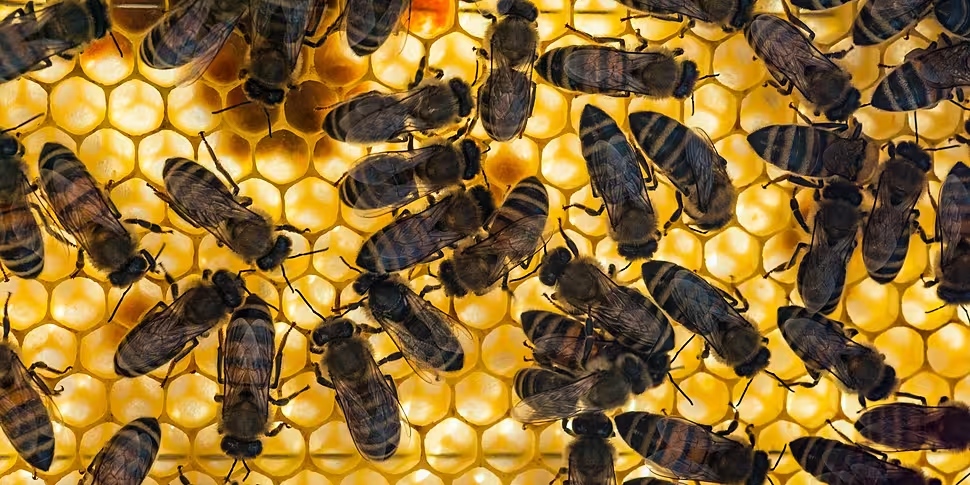Anyone considering the gift of bees or a beehive for Christmas should know what they're doing beforehand.
Ireland only has one native honey bee known as the Apis mellifera mellifera, or the European dark bee.
It can be distinguished from other subspecies by its stocky body and overall dark colouration.
Native Irish Honey Bee Society Vice Chairperson Gerard Coyne told Moncrieff people importing bees is harming our native species.
"We have a native honey bee in Ireland which is well and truly fit for our purpose and has evolved and adapted to our situation for thousands of years," he said.
"Bees are being imported, and it's so easy to do that now with modern technology.
"Bees can come in and they're a subspecies of our native bee and they can breed.
"The problem is our native Irish honey bee is being hybridised, and it's in danger of being hybridised out of existence if it were to continue."
'A wild creature'
Mr Coyne said a beehive makes a lovely present but it needs knowhow first.
"It's a lovely present to get, but it's something that a good deal of thought should be put into," he said.
"You're giving someone a present of a wild creature, really, and that needs to be handled professionally and by experienced people.
"So it'd be better to go down the road of a present of a beginners course or some training in beekeeping to get some knowledge."
Mr Coyne said the number of bees being imported into Ireland have increased in the last few years.
"It's very easy to import - you can import bees from Europe provided they're accompanied by a health certificate," he said.
"They're just not working because our native bee has survived our climate, has adapted to that over the years.
"Our bee is almost black, it's very dark, it's even changed its colour down the thousands of years to attract any little bit of heat that's out there.
"It's got all the characteristics to survive in our climate.
"Now we find a bee arrives in then from Europe, we'll say from the south of Italy and has eight or nine months of high temperatures.
"Suddenly that bee finds itself in Connemara and it gets out and looks around and says, 'What am I doing here?'
"That is a serious problem then, and the fact that they can crossbreed."
 Honey bees on brood cells of a hive, 27-6-06. Image: Images & Stories / Alamy
Honey bees on brood cells of a hive, 27-6-06. Image: Images & Stories / AlamyMr Coyne said non-native bees will not do well in lower temperatures and wet weather.
"You have a very unhappy bee, and then they come under pressure, they're stressed, they get very aggressive.
"Once they're under pressure and stressed, disease sets in," he added.
Mr Coyne said the native honey bee could be bred out of existence in a few years.
Listen back here:









